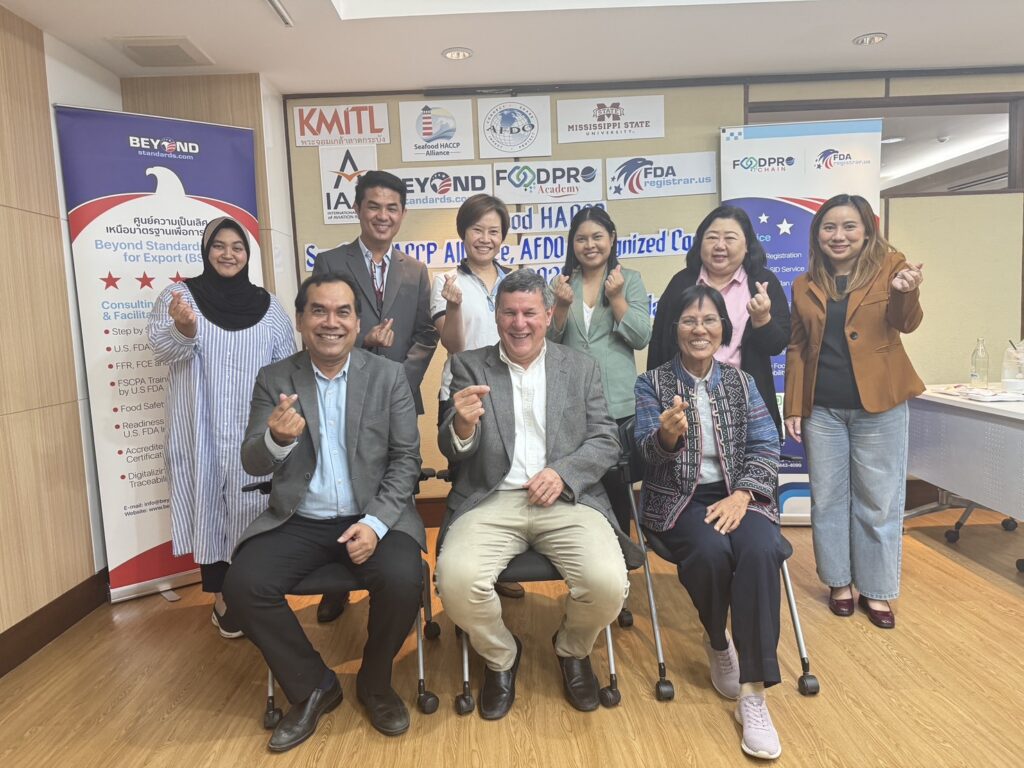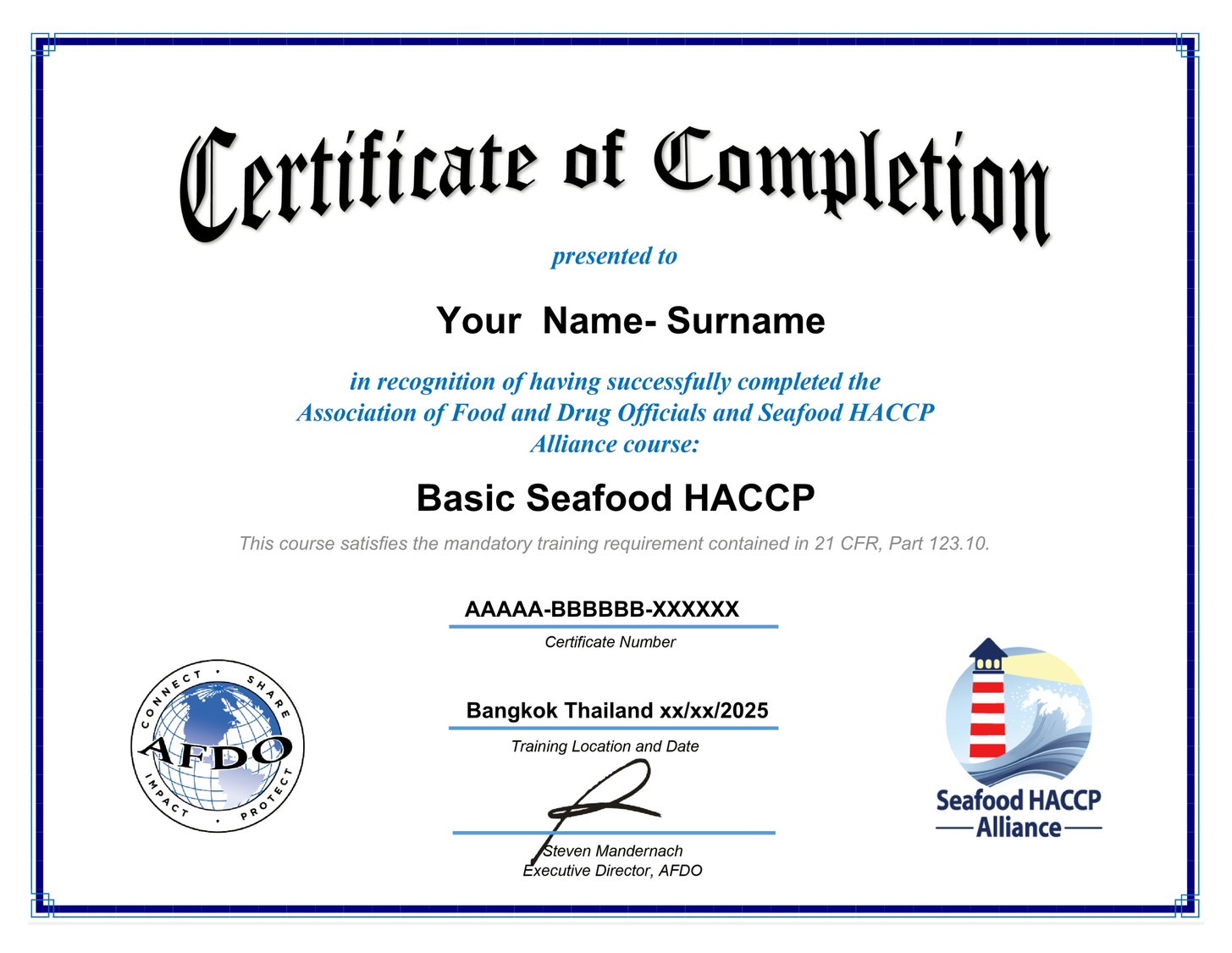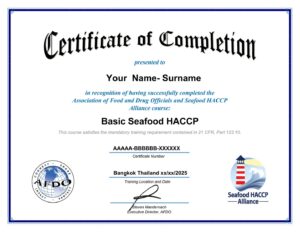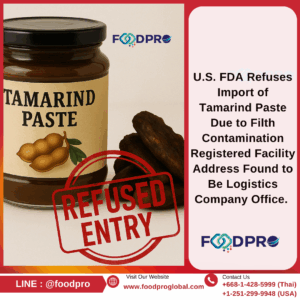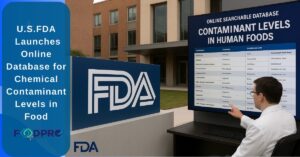Why is Seafood HACCP Important?
Compliance with Seafood HACCP is a legal requirement for seafood products exported to the United States. Under 21 CFR Part 123, the USFDA mandates that seafood processors and exporters implement a properly designed HACCP Plan. Failure to do so can result in import refusals and the facility being placed on the Red List, leading to automatic detention of future shipments.
Seafood HACCP Training Course Certified by USFDA
The Seafood HACCP training course organized by FOODPRO is officially recognized by the Seafood HACCP Alliance, AFDO, and USFDA. Participants who successfully complete the training receive a Certificate endorsed by these entities, verifying their understanding and readiness to comply with USFDA’s regulatory framework.
This course is especially critical for Thai seafood exporters seeking to meet the requirements of 21 CFR Part 123 and export sustainably and lawfully to the U.S.
Why Thai Seafood is Frequently Refused Entry into the U.S.
Seafood from Thailand continues to rank among the top categories of products refused by USFDA. A common misunderstanding is that presenting third-party certification (e.g., ISO, BRC, GMP) is sufficient for USFDA compliance. However, these do not replace the legal obligations under Seafood HACCP and cGMP (21 CFR Part 117 Subpart B), which are covered in the FSPCA Preventive Controls for Human Food course.
In March 2025, multiple Thai seafood shipments were refused entry. These refusals were not necessarily based on inspections conducted in that month. Often, USFDA had previously identified non-compliance, issued a warning or corrective request, and observed that the facility failed to demonstrate sufficient corrective action. Consequently, these facilities and their products were publicly listed, and their names added to the Red List. Once on this list, future shipments are automatically detained.
The Importance of Legal Accuracy in Facility Registration
Some exporters mistakenly or fraudulently list the addresses of logistics companies or office buildings—where no actual processing takes place—as their food production facilities when registering with USFDA. If USFDA requests documentation such as a Food Safety Plan, Seafood HACCP Plan, or Juice HACCP Plan, and the registrant fails to provide these or denies inspection due to lack of actual production at the listed site, USFDA will cancel the facility’s registration.
Any company that ships products from falsely declared locations will face scrutiny. All shipments associated with that location may be refused entry. USFDA records show that some facilities in Thailand have already been subject to Import Alerts for this very reason—refusing to allow inspections or failing to meet compliance requirements.
FOODPRO’s Commitment to Thai Food Producers
FOODPRO is committed to supporting Thai food manufacturers and exporters by promoting accurate understanding and compliance with USFDA regulations. We believe that sustainable export success comes from proactive compliance—not just past experience. Just because a facility has previously exported without issue does not guarantee future clearance, especially once subject to random inspection.
Whether USFDA visits a facility in Thailand or inspects shipments at the port of entry, if it determines that a producer is not in compliance and fails to make necessary corrections within a reasonable time frame, those products will be detained. Repeated non-compliance can lead to long-term trade consequences, including the inability to ship from the affected facility ever again.
FOODPRO provides certified training and consulting to ensure Thai exporters fully understand their legal obligations and can operate with confidence in the U.S. market.
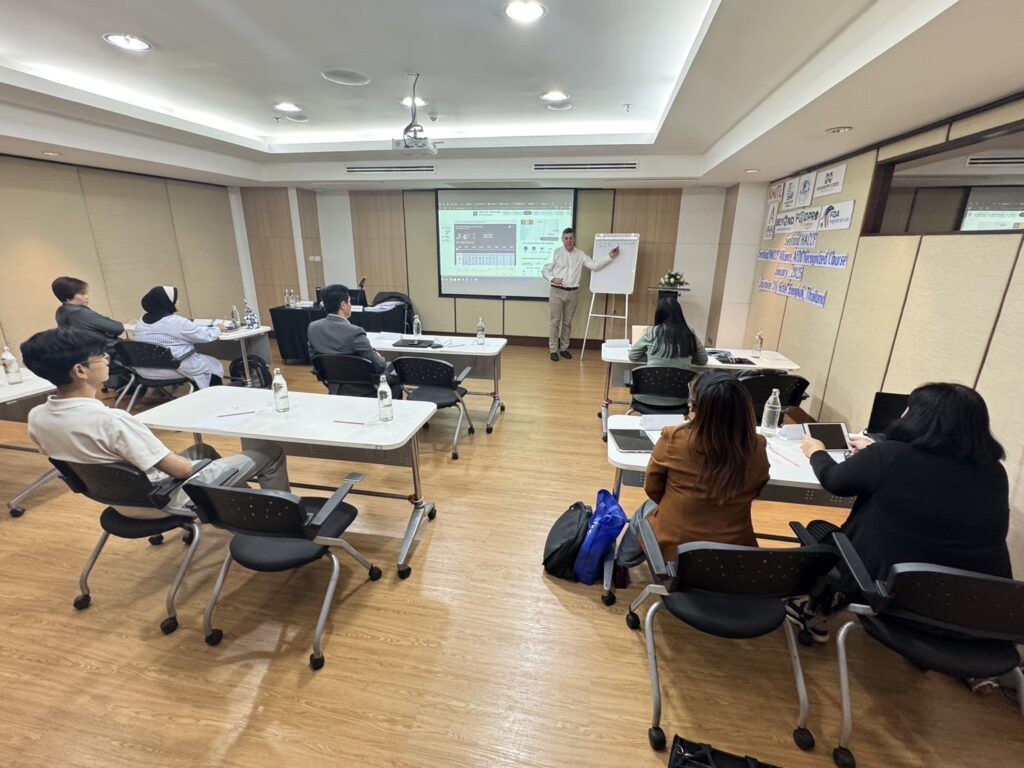
Empowering Excellence in Food Trade
Ready to Get Started?
Your to U.S. Food Compliance
